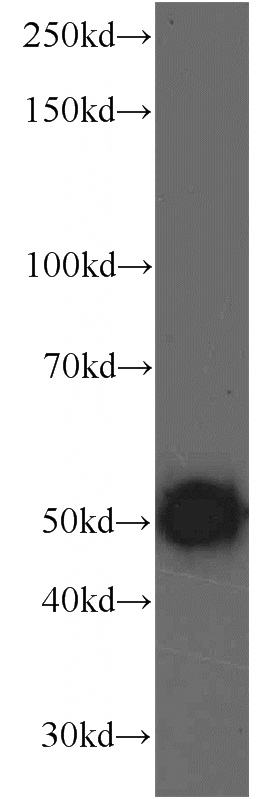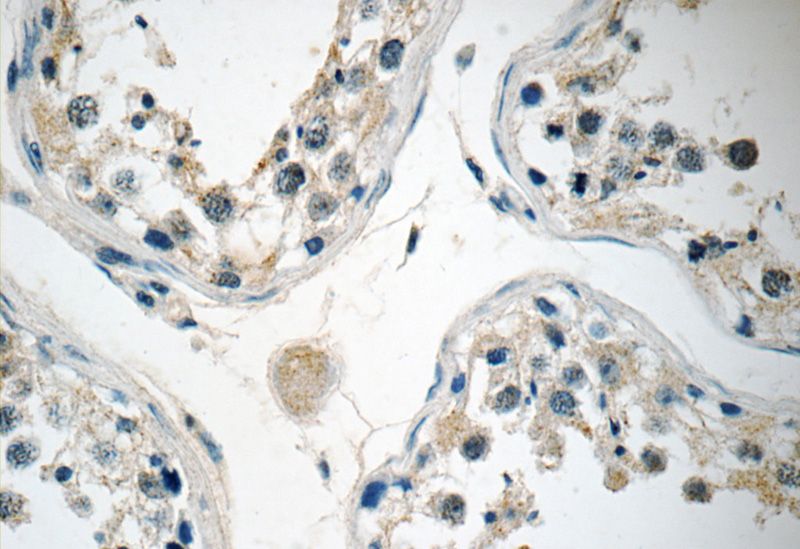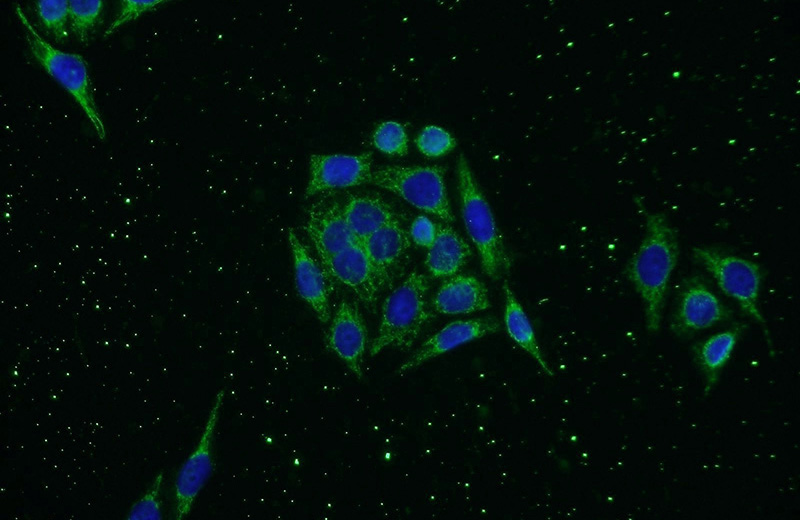-
Product Name
KLHDC3 antibody
- Documents
-
Description
KLHDC3 Rabbit Polyclonal antibody. Positive IHC detected in human testis tissue. Positive IF detected in PC-3 cells. Positive WB detected in mouse testis tissue, PC-3 cells, rat testis tissue. Observed molecular weight by Western-blot: 50 kDa
-
Tested applications
ELISA, WB, IHC, IF
-
Species reactivity
Human,Mouse,Rat; other species not tested.
-
Alternative names
dJ20C7.3 antibody; hPEAS antibody; kelch domain containing 3 antibody; KLHDC3 antibody; PEAS antibody; Protein Peas antibody; RP1 20C7.3 antibody
-
Isotype
Rabbit IgG
-
Preparation
This antibody was obtained by immunization of KLHDC3 recombinant protein (Accession Number: BC041793). Purification method: Antigen affinity purified.
-
Clonality
Polyclonal
-
Formulation
PBS with 0.1% sodium azide and 50% glycerol pH 7.3.
-
Storage instructions
Store at -20℃. DO NOT ALIQUOT
-
Applications
Recommended Dilution:
WB: 1:500-1:5000
IHC: 1:20-1:200
IF: 1:20-1:200
-
Validations

mouse testis tissue were subjected to SDS PAGE followed by western blot with Catalog No:112085(KLHDC3 antibody) at dilution of 1:1500

Immunohistochemistry of paraffin-embedded human testis tissue slide using Catalog No:112085(KLHDC3 Antibody) at dilution of 1:50 (under 40x lens)

Immunofluorescent analysis of PC-3 cells using Catalog No:112085(KLHDC3 Antibody) at dilution of 1:50 and Alexa Fluor 488-congugated AffiniPure Goat Anti-Rabbit IgG(H+L)
-
Background
The BTB (Broad-Complex, Tramtrack and Bric a brac) domain, also known as the POZ (Poxvirus and Zinc finger) domain, is an N-terminal homodimerization domain that contains multiple copies of kelch repeats and/or C2H2-type zinc fingers. Proteins that contain BTB domains are thought to be involved in transcriptional regulation via control of chromatin structure and function. The Kelch domain-containing protein 3 (KLHDC3), also designated PEAS, contains 5 Kelch repeats and may be involved in meiotic recombination process. The gene encoding KLHDC3 maps to chromosome 6, which contains around 1,200 genes within 170 million base pairs of sequence. Deletion of a portion of the q arm of chromosome 6 is associated with early onset intestinal cancer suggesting the presence of a cancer susceptibility locus. Porphyria cutanea tarda, Parkinson's disease, Stickler syndrome, 21-hydroxylase deficiency and maple syrup urine disease are also associated with genes on chromosome 6. KLHDC3 protein is mainly expressed in cytoplasm, also found in meiotic chromatin.This antibody specifically reacts with the 55kd KLHDC3 protein.
Related Products / Services
Please note: All products are "FOR RESEARCH USE ONLY AND ARE NOT INTENDED FOR DIAGNOSTIC OR THERAPEUTIC USE"
